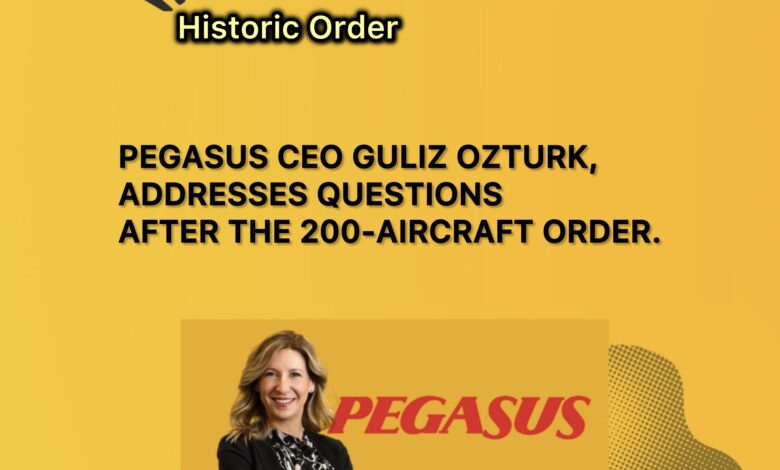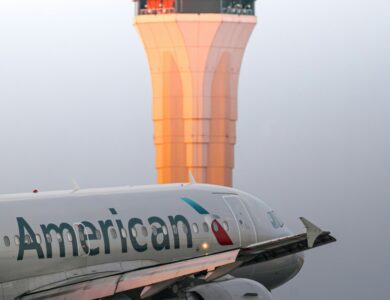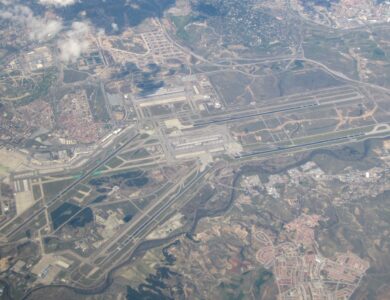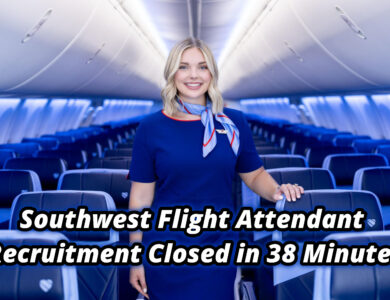General News
Pegasus Airlines CEO Güliz Öztürk Addresses Questions from HavaSosyalMedya Following the Historic Aircraft Order with Boeing

Pegasus Airlines CEO Güliz Öztürk Addresses Questions from HavaSosyalMedya Following the Historic Aircraft Order with Boeing:
- Are there plans to use Boeing 737-10 aircraft for long-haul or new international destinations? For example, do you aim to fly to regions beyond Europe?
▶️ The Boeing 737-10 is a highly efficient aircraft model with a capacity of 230 passengers and a range of up to 5,740 km (3,100 nautical miles). Our new aircraft will be deployed on both existing routes and newly launched destinations in line with our growth strategy. We aim to enhance service quality in our existing destinations across Europe, the Middle East, Central Asia, and Africa, and reach new markets within these regions. However, we currently do not have plans to fly to destinations beyond Europe or longer-haul routes. - What are the cost advantages of the Boeing 737-10 on short-haul routes? How will you maintain profitability with low load factors?
▶️ The Boeing 737-10 is an ideal choice to meet our long-term capacity needs. Its efficiency makes it one of the best in terms of seat profitability among single-aisle aircraft. At Pegasus, we do not expect low load factors. - Given the capacity issues at Sabiha Gökçen Airport, do you plan to consider Istanbul Airport (IGA) as a hub?
▶️ We currently have no such plans. - Are there new investments planned at Sabiha Gökçen Airport?
▶️ There is an upcoming project for a second terminal, and the official process will commence soon. We are closely monitoring developments. Enhancements are being made to improve passenger flow and increase capacity in the current terminal. Pegasus is also continuing its investments to boost operational efficiency. - Do other airports in Turkey (besides İzmir Adnan Menderes, Antalya, and Ankara) have the potential to become new hubs?
▶️ As we expand our fleet with next-generation aircraft, we are growing our flight network by adding new destinations. In 2024, we opened a total of 23 international routes from Antalya, Ankara, and İzmir, in addition to Sabiha Gökçen Airport. In 2025, we aim to sustain this growth by increasing flight frequencies to existing destinations and adding new ones. We currently operate a large-scale operation in Antalya and aim to further expand our activities there. - Did you secure a favorable price in the agreement with Boeing compared to market conditions? Did the cancellation of Boeing orders by some airlines benefit you?
▶️ Due to confidentiality agreements, we cannot comment on the details of the contract. - What contributions will the collaboration with Boeing bring to Turkey’s aviation sector in terms of local production and technology transfer? How will this order impact Turkish companies and employment?
▶️ We believe that our collaboration with Boeing will create new opportunities in local production, technology transfer, R&D, training, and employment within Turkey’s aviation industry. Our order will open new doors for Turkish manufacturers and provide export opportunities, as it aligns with Boeing’s National Aerospace Initiative launched in 2017. - You mentioned that the Boeing 737-10 aircraft contribute to fuel savings in line with your 2050 sustainability goals. How will this impact your operational costs and carbon footprint?
▶️ As part of our “2050 Net Zero Carbon Emissions” goal, we published our roadmap earlier this year. Investing in a young and fuel-efficient fleet is a significant step toward achieving our short- and long-term sustainability targets. The CFM International LEAP-1B engines used in the Boeing 737-10 offer substantial improvements in fuel efficiency, noise reduction, and emissions compared to previous-generation engines. These advancements will play a key role in meeting our cost and environmental objectives.



